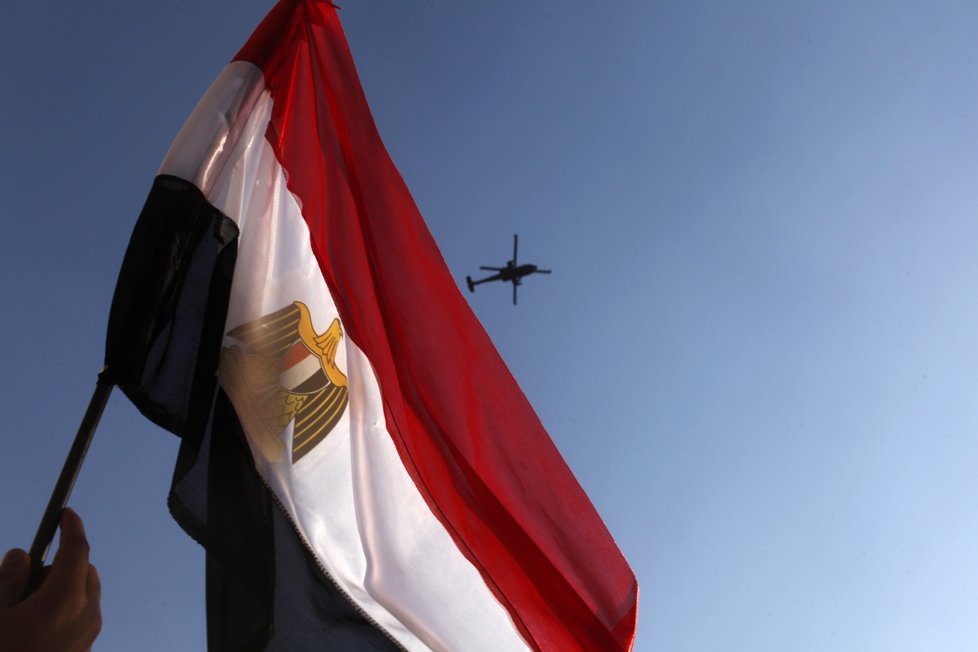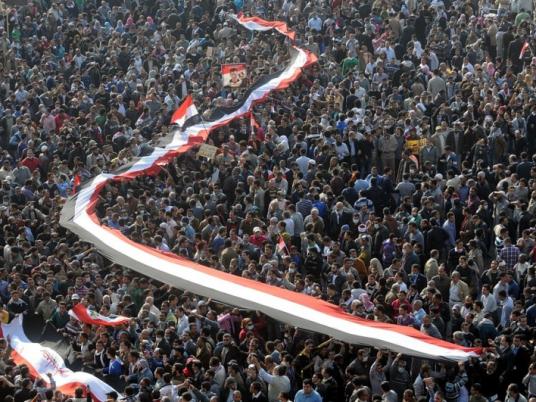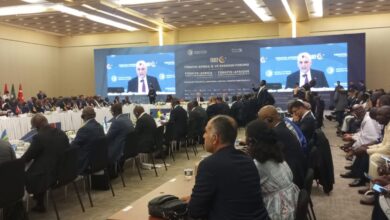“Push your flight back tomorrow,” Khaled al-Qazzaz, the foreign relations coordinator at the Muslim Brotherhood’s Freedom and Justice Party (FJP) told me on the phone, “you’re going to meet the boss.” The boss it turned out was none other than Muslim Brotherhood Deputy Chairman and businessman Khairet al-Shater, perhaps one of the most influential people in post-Mubarak Egypt.
I was invited to meet leaders of the Muslim Brotherhood following an opinion article I had written for Egypt Independent earlier this month. The piece included for the first time explicit requests made from an Arab Gulf State foreign minister to the Brotherhood for relations between them to be normalized. This offer was in return for assurances that the Brotherhood would not seek to “export the revolution” to the Gulf, that it would not compromise on Gulf security and that future governments develop a systemic economic plan so the Gulf states could commit to further investments in Egypt.
In a spacious room that included an office desk and a circular meeting table I met 62-year-old Mohammed Khairat al-Shater, as his business cards read. He is an imposing figure, and full of energy. He, like thousands of other members of the Brotherhood, spent more than a decade in jail during the Mubarak era, only to come out and establish one of the country’s most successful furniture and textile retail businesses.
As soon as we sat I was asked, “Would you like this to be a journalistic interview or would you like to discuss the points in your recent article?” It was either one or the other; and since I felt that Qazzaz had, in his official capacity, sufficiently addressed all the points that were raised in my earlier article, I opted for a private candid discussion, that ensued over the next 90 minutes and covered various political developments in the region.
Less than 24 hours earlier I had visited the Muslim Brotherhood office in Heliopolis, to meet with Qazzaz, who set up the meeting with Shater. Qazzaz, a 30-something-year-old engineer who speaks fluent English and Arabic, spoke fondly to me of his time growing up in the United Arab Emirates, between Sharjah, the emirate where I am from, and the capital Abu Dhabi.
We immediately tackled the three points that were brought up by the UAE’s foreign minister.
“It is against our interest to ‘export the revolution’ to the Gulf in the meaning of exporting chaos,” he said. He then added that the Brotherhood “encourages stable and continuous development in the region”. Qazzaz told me that the Muslim Brotherhood was “concerned with stability of the Gulf states” since it is in Egypt’s own interest.
On the issue of “not compromising on Gulf security,” Qazzaz paused and gave me a highly measured diplomatic answer: “The establishment of a new democratic Egypt with a balanced Islamic outlook will provide a better picture of Sunni Islamic countries and increase cooperation between them”.
The Brotherhood, he reiterated, is “concerned with Gulf security, and it will help support it. We need it for the transition” he said, alluding to Egypt’s dragging power transfer process from military to civilian authority. The Brotherhood is keenly aware of the new role that they play: they are at the helm of the region’s most populated country, whose economy is faltering along with dwindling investments. The specter of mounting regional tensions and possibly a deteriorating situation in the Gulf will certainly not bode well for Egypt’s economic recovery.
On the issue of investment, Qazzaz stressed that any government formed by the Brotherhood will respect previous treaties and protect investments. He said that as they have sought counsel from Turkey, France and England, the Brotherhood would also like to discuss fostering investment “from the Gulf investors’ perspective” and seek their comments on proposed foreign investment legislation. The Brotherhood, he said, would “strategically work to protect and increase investments in the immediate future.” While this task seems straightforward, especially for such a promising country as Egypt, the Brotherhood may face some resistance from various elements in Egyptian society, not least the Supreme Council of Armed Forces whom it is believed was unhappy with Gamal Mubarak’s corrupt privatization program since it challenged their own business interests.
Regarding the incidents in which some Gulf businessmen had their business deals reviewed since the outbreak of Egypt’s revolution, I was repeatedly assured the process would be fair. In fact, the past year has seen a number of questionable business deals by high-profile Gulf investors in Egypt reviewed and even annulled. In my meeting the next day at the Moqattam headquarters I was told that such a process of reviewing business deals will go through negotiations and fair reconciliation and not seek to punish any of the investors. I was also told that even the current Egyptian laws would be considered fair if they were “implemented properly.” If a Gulf investor had benefitted unfairly, say in a land investment deal, due to his relations with corrupt figures in Mubarak’s regime, the Brotherhood would encourage reconciliation and payback in different forms, such as investing the equivalent amount of funds in a new project to create jobs for Egyptians.
I inquired about the fate of the more than 2 million Egyptian expats living and working in the six Arab Gulf States. Over the past few months, rumors were circulating that some Gulf countries were banning visas for Egyptians, something the UAE vehemently denied.
Qazzaz described Egyptian expats in the Gulf as a “pillar of the relationship” between their homeland and their adopted countries, adding that they are a valuable source of cash flow into Egypt. According to Qazzaz, the Muslim Brotherhood’s concern for Egypt’s Gulf-based expats stems from them being Egyptian nationals, just as the group is concerned with the welfare of Egyptian nationals anywhere else in the world. These workers, I was told, remit significant amounts of money and their return will “burden” the Egyptian economy. Additionally, having them in the Gulf acts as a “cultural bridge” between the two sides.
Qazzaz reflected many of the points that were raised in my meeting with Shater and other Brotherhood leaders the next day. On both occasions I sensed a strong desire to seek to rebuild ties with the Gulf, perhaps at first away from the glare of media attention. “It is,” said Qazzaz, “in our interests that our relations with the UAE and the Gulf be stronger than before.”
Sultan al-Qassemi is a UAE-based commentator on Arab affairs.




